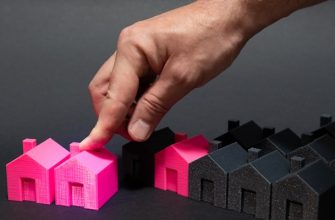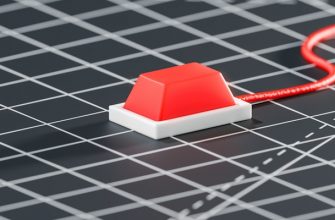- Revolutionizing Real Estate: How Blockchain is Reshaping Property Ownership
- From Traditional to Digital: The Role of RWA in Modern Property Markets
- Smart Contracts and Real-World Assets: A New Era in Property Transactions
- Navigating Legal Frameworks: The Challenges and Opportunities of RWA on Blockchain
- Tokenization of Assets: Unlocking Liquidity in the Real Estate Sector
- Future Trends: The Impact of Blockchain Technology on Property Investment Strategies
Revolutionizing Real Estate: How Blockchain is Reshaping Property Ownership
The integration of blockchain technology into real estate is creating a paradigm shift in property ownership. By leveraging blockchain, the traditional processes associated with real estate transactions are being streamlined and made more transparent. This shift not only enhances security but also reduces costs and time delays typically associated with property deals.
One significant innovation in property ownership through blockchain is the tokenization of real estate assets. Tokenization involves converting physical properties into digital tokens on a blockchain, which represent ownership stakes. This process allows for fractional ownership, enabling more investors to participate in the real estate market without the need for substantial capital. As a result, property ownership becomes more accessible to a broader audience.
Moreover, blockchain enhances the transparency of property transactions. Each transaction is recorded in a decentralized ledger, making it virtually impossible to alter or manipulate the ownership history of a property. This feature not only protects buyers and sellers from fraud but also builds trust in the real estate market.
- Increased accessibility to property investments through fractional ownership.
- Enhanced transparency in ownership records, reducing the risk of fraud.
- Streamlined processes for buying, selling, and leasing properties.
- Lower transaction costs due to reduced need for intermediaries.
- Faster transaction times through smart contracts that automate agreements.
Furthermore, smart contracts play a crucial role in revolutionizing property ownership. These self-executing contracts automatically enforce and execute terms based on the conditions set within the blockchain. This automation minimizes the need for third parties, such as lawyers and brokers, thus expediting the transaction process and lowering associated fees.
As the real estate sector continues to explore the capabilities of blockchain, it is evident that this technology is not just a passing trend. The potential for blockchain to reshape property ownership is immense, with innovations paving the way for a more equitable, efficient, and secure real estate market. Embracing these advancements will be vital for stakeholders looking to thrive in the evolving landscape of property ownership.
From Traditional to Digital: The Role of RWA in Modern Property Markets
The transition from traditional property ownership models to digital formats has significantly altered the landscape of real estate. The emergence of Real World Assets (RWA) represents a pivotal shift in how properties are perceived and traded. RWA encapsulates physical assets such as real estate, art, and commodities, integrating them into the digital realm through blockchain technology. This integration not only enhances transparency but also streamlines transactions, making property ownership more accessible to a broader audience.
Blockchain technology serves as the backbone for RWA, providing a decentralized ledger that ensures secure and immutable records of ownership. This technology mitigates risks associated with fraud and disputes over property titles, fostering a new level of trust in the real estate market. By tokenizing physical assets, RWA allows fractional ownership, enabling smaller investors to enter the market and participate in property investment without requiring substantial capital.
- Enhanced liquidity: RWA facilitates quicker transactions, allowing assets to be bought and sold with ease.
- Lower barriers to entry: Fractional ownership democratizes access to high-value properties.
- Increased transparency: Blockchain’s immutable records reduce the likelihood of disputes and fraud.
- Global reach: Digital assets can be easily traded across borders, expanding market opportunities.
As RWA continues to evolve, its impact on modern property markets is profound. The blending of physical and digital ownership models creates innovative opportunities for investors and property owners alike. The future of real estate ownership is increasingly intertwined with digital innovations, where RWA stands at the forefront, transforming how properties are bought, sold, and managed in an increasingly digital world.
Smart Contracts and Real-World Assets: A New Era in Property Transactions
Smart contracts are revolutionizing the way property transactions are conducted, particularly in the realm of real-world assets (RWA). By leveraging blockchain technology, these digital agreements facilitate automatic execution of contractual terms without the need for intermediaries. This innovation enhances transparency, security, and efficiency in property ownership transfers.
In traditional property transactions, multiple parties, including real estate agents, lawyers, and banks, are involved, often leading to delays and increased costs. With the integration of smart contracts, the entire process can be streamlined. Smart contracts eliminate the need for these middlemen, allowing buyers and sellers to engage directly while ensuring that all conditions are met before a transaction is finalized.
- Enhanced Security: Smart contracts operate on a decentralized network, making them resistant to fraud and unauthorized alterations.
- Cost Efficiency: Reduced reliance on intermediaries leads to lower transaction fees, benefiting both buyers and sellers.
- Faster Transactions: Automatic execution of contracts allows for quicker property transfers, reducing the waiting time associated with conventional methods.
- Increased Transparency: All parties have access to the same information in real time, minimizing disputes and fostering trust.
As the adoption of smart contracts in property transactions grows, the implications for real-world assets are profound. By digitizing property titles and integrating them into blockchain networks, ownership becomes more verifiable and transferable. This transformation not only simplifies the buying and selling process but also opens up new opportunities for fractional ownership and investment in real estate.
In conclusion, the intersection of RWAs and blockchain technology through smart contracts is reshaping property ownership. This new era promises to enhance the overall experience of property transactions, making them more secure, efficient, and accessible to a broader audience. As more stakeholders recognize the benefits of these innovations, the future of real estate transactions will likely become increasingly digital and automated.
Navigating Legal Frameworks: The Challenges and Opportunities of RWA on Blockchain
The integration of Real-World Assets (RWA) with blockchain technology presents a unique landscape filled with both challenges and opportunities. Navigating the legal frameworks surrounding RWA on blockchain requires a comprehensive understanding of existing regulations, as well as an awareness of the evolving nature of digital asset legislation.
One of the primary challenges in this intersection is the ambiguity that often exists in legal definitions. Different jurisdictions may interpret the ownership and transfer of RWA on blockchain differently, leading to a complex web of compliance requirements. This can create uncertainty for stakeholders looking to leverage blockchain for property ownership.
Despite these challenges, several opportunities arise from the adoption of blockchain for RWA. The transparency and immutability of blockchain can enhance trust in property transactions, reducing fraud and ensuring a clear chain of ownership. Furthermore, smart contracts enable automated execution of agreements, streamlining processes that traditionally involve multiple intermediaries.
- Regulatory Compliance: It is crucial to stay updated on local and international regulations governing RWA and blockchain. This may include securities laws, property laws, and anti-money laundering regulations.
- Interoperability: Ensuring that different blockchain systems can communicate effectively can solve many legal challenges related to asset ownership and transfer.
- Consumer Protection: Legal frameworks must evolve to protect consumers engaging in RWA transactions on blockchain platforms, addressing potential disputes and liabilities.
- Taxation: Clarifying tax implications for RWA transactions on blockchain is essential for both individuals and businesses involved in these digital asset exchanges.
In conclusion, while the intersection of RWA and blockchain presents significant legal hurdles, it also offers innovative solutions that can transform property ownership. By addressing these legal complexities, stakeholders can harness the full potential of blockchain technology to redefine how real-world assets are managed and transferred.
Tokenization of Assets: Unlocking Liquidity in the Real Estate Sector
Tokenization of assets represents a groundbreaking shift in the real estate sector, providing unprecedented liquidity and accessibility. By converting physical properties into digital tokens on a blockchain, investors can buy, sell, and trade real estate assets with remarkable ease. This innovative approach not only democratizes property ownership but also enhances investment opportunities for a wider audience.
The emergence of blockchain technology has allowed for the seamless integration of tokenized assets into the real estate market. Traditional barriers, such as high entry costs and lengthy transaction processes, are significantly reduced. This transformation enables fractional ownership, allowing multiple investors to share in the potential profits of a single property.
- Increased Liquidity: Tokenization allows real estate assets to be traded on various platforms, enhancing liquidity and providing quicker access to cash for investors.
- Reduced Barriers: The ability to purchase fractional shares lowers the financial requirements for investors, making real estate more accessible.
- Transparency: Blockchain technology ensures that all transactions are recorded on a public ledger, fostering trust and accountability in the property sector.
- Global Reach: Tokenized assets can be bought and sold across borders, broadening the investor base and increasing market participation.
By incorporating smart contracts, tokenization streamlines the transaction process, automating various aspects of property management and ownership. This efficiency not only reduces operational costs but also minimizes the risks associated with traditional real estate investments.
As the real estate sector continues to evolve, the adoption of asset tokenization is likely to gain momentum. Investors are increasingly recognizing the advantages of blockchain technology in enhancing liquidity, transparency, and accessibility within the property market. The future of real estate ownership is poised for a significant transformation, driven by innovative solutions that leverage the power of tokenization.
Future Trends: The Impact of Blockchain Technology on Property Investment Strategies
The emergence of blockchain technology is reshaping the landscape of property investment strategies, offering innovative solutions that enhance transparency and security in real estate transactions. By integrating blockchain with Real World Assets (RWA), investors can access decentralized platforms that streamline the buying and selling process, reducing friction and costs associated with traditional methods.
- Increased Transparency: Blockchain technology provides an immutable ledger that records every transaction, ensuring all parties have access to accurate property histories. This transparency minimizes fraud and enhances trust among buyers and sellers.
- Fractional Ownership: By utilizing blockchain, property investment can be democratized through tokenization. This allows multiple investors to own fractions of a property, making real estate investment accessible to a broader audience.
- Smart Contracts: The implementation of smart contracts automates the execution of agreements, ensuring that outcomes are met without the need for intermediaries. This not only speeds up transactions but also reduces legal complexities associated with property deals.
- Global Reach: Blockchain technology transcends geographical boundaries, enabling investors to participate in international property markets easily. This global accessibility opens up new opportunities for diversification and investment strategies.
As blockchain continues to evolve, its integration with property investment strategies is expected to grow, leading to a more efficient and secure real estate market. The impact of these innovations is profound, paving the way for a future where property ownership is more fluid, inclusive, and transparent.






